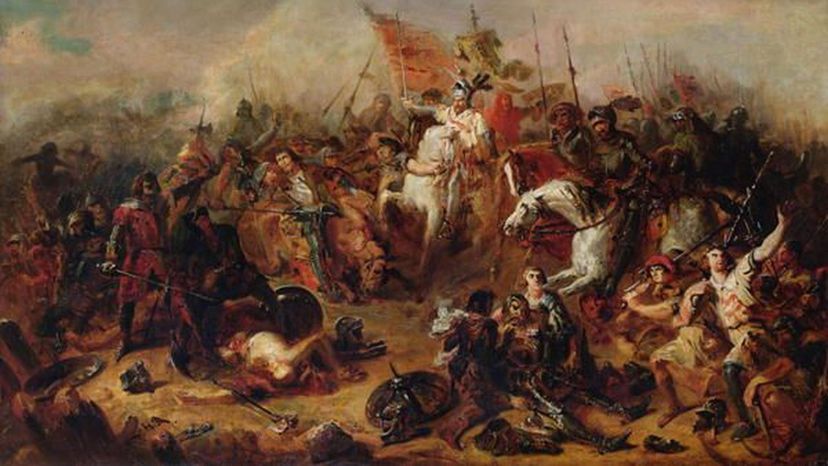
About This Quiz
"The British are special. The world knows it. In our innermost thoughts, we know it. This is the greatest nation on earth." - Tony Blair
Kings, queens, invasions, literature and war; these are just a few of the defining elements of English history, one that dates back thousands of years. How well do you know English history, though? Could you pass this quiz on the topic? Here's your chance to find out!
English history is quite unique in that England's presence has been influential around the entire world. Not that other countries don't have global influence, but there's something about the English, who have left their mark from England to America all the way to India and Australia. This island nation has been at the forefront of exploration and innovation; it's solved conflicts and created conflicts; it's pushed independent thought and democracy; and most importantly, England has survived. Despite changes and war, the country has survived and is still a global power today.Â
Are you an expert on English history? Do you know all of the leaders and major events that have shaped the country? If you think you do and are up for a challenge, get started with this quiz and prove your knowledge of English history!
Advertisement
Advertisement
Advertisement
Advertisement
Advertisement
Advertisement
Advertisement
Advertisement
Advertisement
Advertisement
Advertisement